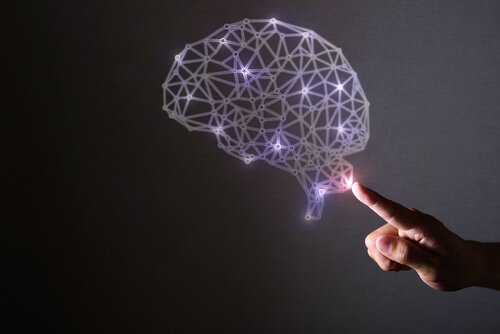Neurohappiness, the science of happiness?

Neurohappiness. Reading the term is enough to spark one’s curiosity like that of a child seeing a magic trick. Suddenly, we notice that the word “happiness” is not alone, designated to an intangible emotional state. No. Here it is a state linked to the body. “Neuro” is a prefix which refers to the nervous system.
Emotions depend on the activity of the brain. They are essential for each individual’s survival. They are characterized by two aspects. One is that emotions produce a subjective sensation. The other is that they are usually accompanied by an external manifestation. This way, happiness manifests as internal well-being and externally by creating forms of expression of this well-being which usually generates positive feedback.
Happiness and the nervous system
Usually, when one must define and explain this emotion, one associates it with our emotional universe. We link it to the satisfaction and dissatisfaction of a desire or of a fulfilled dream. This emotion presents on a metaphysical plane. It is not something we can touch, keep in the closet, and put on every morning. It is somewhat variable, uncontrollable, in most cases, linked to an external experience.

However, we are not aware that this emotion doesn’t originate from the experience itself. It is the subproduct of a chemical process in the nervous system. It is based on the body. Our bodies are producers of happiness. It doesn’t just come out of nowhere, like a divine consequence. It is a chemical reaction to our experiences and their accordance with our conception of reality.
The chemicals of happiness
You might be asking yourself what a chemical reaction is and also how our conception of reality plays a main role in the amount of happiness we experience. The answer to those two questions is simple. On one hand, we have happiness hormones: endorphin, serotonin, dopamine, and oxytocin. When we refer to chemical reactions, we’re talking about when these hormones work within the nervous systems. They are associated with positive emotions: love, pleasure, pain blocking, etc.
On the other hand, we have our conception of reality. This is a psycho-social construction that has been adjusting itself since our childhood. It is usually determined by our first experiences. A construction which defines our future. Our conception of reality will influence our relationships and, therefore, our biological production of happiness.
Theorizing and building a longlasting well-being
Talking about Neurohappiness implies theorizing about well-being. This means that we are establishing real foundations to understand happiness and be able to create strategies which allow us to be happy. It’s possible to build happiness which doesn’t depend on the experience itself. In order to achieve it, we simply need to transform the chemistry in our brains and our perception of reality.

In other words, we can begin to see “the glass half full” instead of “half empty”. And this change in our mentality will transform our brain’s ability to produce chemicals associated with well-being. It will be able to produce an inertia and an origin that will maintain this emotional state over time.
Neurohappiness – a new concept
This new perspective on happiness empowers us in the process towards achieving long-lasting well being. That is to say, we know that it is within our reach. It is something which we can obtain and perpetuate over time. We can transform it into a tangible reality.
This all includes methods and exercises which allow us to generate these hormones, awakening the cerebral circuits designed to provide us with a sensation of well being. The key is being capable of activating those circuits voluntarily. This way, we can be our own producers of happiness.
Is Neurohappiness the science of happiness?
We can answer this question with a clear “yes”. There is an essential link between our positive emotions and our nervous system. That is to say that we can explain and theorize about happiness by focusing on the chemical reactions that take place within the brain.

Furthermore, that conception redefines our happiness, because it tells us that our emotions don’t depend on how much money we save up or on the success we achieve. It is much more conditioned by a process on the biological plane which creates and regulates this emotion. This process is influenced by the way we perceive reality. And, simultaneously, it also conditions the way we see reality. In this sense, happiness is a path we can choose to take.
Neurohappiness. Reading the term is enough to spark one’s curiosity like that of a child seeing a magic trick. Suddenly, we notice that the word “happiness” is not alone, designated to an intangible emotional state. No. Here it is a state linked to the body. “Neuro” is a prefix which refers to the nervous system.
Emotions depend on the activity of the brain. They are essential for each individual’s survival. They are characterized by two aspects. One is that emotions produce a subjective sensation. The other is that they are usually accompanied by an external manifestation. This way, happiness manifests as internal well-being and externally by creating forms of expression of this well-being which usually generates positive feedback.
Happiness and the nervous system
Usually, when one must define and explain this emotion, one associates it with our emotional universe. We link it to the satisfaction and dissatisfaction of a desire or of a fulfilled dream. This emotion presents on a metaphysical plane. It is not something we can touch, keep in the closet, and put on every morning. It is somewhat variable, uncontrollable, in most cases, linked to an external experience.

However, we are not aware that this emotion doesn’t originate from the experience itself. It is the subproduct of a chemical process in the nervous system. It is based on the body. Our bodies are producers of happiness. It doesn’t just come out of nowhere, like a divine consequence. It is a chemical reaction to our experiences and their accordance with our conception of reality.
The chemicals of happiness
You might be asking yourself what a chemical reaction is and also how our conception of reality plays a main role in the amount of happiness we experience. The answer to those two questions is simple. On one hand, we have happiness hormones: endorphin, serotonin, dopamine, and oxytocin. When we refer to chemical reactions, we’re talking about when these hormones work within the nervous systems. They are associated with positive emotions: love, pleasure, pain blocking, etc.
On the other hand, we have our conception of reality. This is a psycho-social construction that has been adjusting itself since our childhood. It is usually determined by our first experiences. A construction which defines our future. Our conception of reality will influence our relationships and, therefore, our biological production of happiness.
Theorizing and building a longlasting well-being
Talking about Neurohappiness implies theorizing about well-being. This means that we are establishing real foundations to understand happiness and be able to create strategies which allow us to be happy. It’s possible to build happiness which doesn’t depend on the experience itself. In order to achieve it, we simply need to transform the chemistry in our brains and our perception of reality.

In other words, we can begin to see “the glass half full” instead of “half empty”. And this change in our mentality will transform our brain’s ability to produce chemicals associated with well-being. It will be able to produce an inertia and an origin that will maintain this emotional state over time.
Neurohappiness – a new concept
This new perspective on happiness empowers us in the process towards achieving long-lasting well being. That is to say, we know that it is within our reach. It is something which we can obtain and perpetuate over time. We can transform it into a tangible reality.
This all includes methods and exercises which allow us to generate these hormones, awakening the cerebral circuits designed to provide us with a sensation of well being. The key is being capable of activating those circuits voluntarily. This way, we can be our own producers of happiness.
Is Neurohappiness the science of happiness?
We can answer this question with a clear “yes”. There is an essential link between our positive emotions and our nervous system. That is to say that we can explain and theorize about happiness by focusing on the chemical reactions that take place within the brain.

Furthermore, that conception redefines our happiness, because it tells us that our emotions don’t depend on how much money we save up or on the success we achieve. It is much more conditioned by a process on the biological plane which creates and regulates this emotion. This process is influenced by the way we perceive reality. And, simultaneously, it also conditions the way we see reality. In this sense, happiness is a path we can choose to take.
This text is provided for informational purposes only and does not replace consultation with a professional. If in doubt, consult your specialist.







